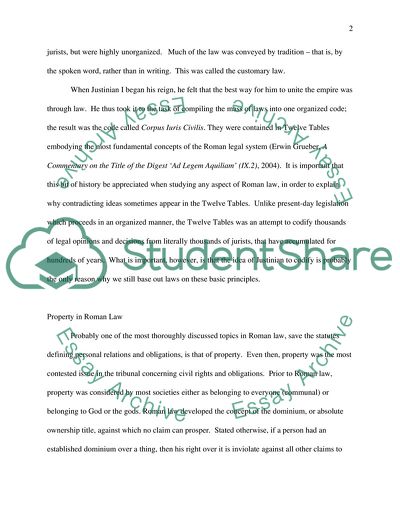Cite this document
(The Concept of Property in Corpus Juris Civilis by Justinian Report Example | Topics and Well Written Essays - 1500 words - 2, n.d.)
The Concept of Property in Corpus Juris Civilis by Justinian Report Example | Topics and Well Written Essays - 1500 words - 2. https://studentshare.org/law/1736118-essay-3
The Concept of Property in Corpus Juris Civilis by Justinian Report Example | Topics and Well Written Essays - 1500 words - 2. https://studentshare.org/law/1736118-essay-3
(The Concept of Property in Corpus Juris Civilis by Justinian Report Example | Topics and Well Written Essays - 1500 Words - 2)
The Concept of Property in Corpus Juris Civilis by Justinian Report Example | Topics and Well Written Essays - 1500 Words - 2. https://studentshare.org/law/1736118-essay-3.
The Concept of Property in Corpus Juris Civilis by Justinian Report Example | Topics and Well Written Essays - 1500 Words - 2. https://studentshare.org/law/1736118-essay-3.
“The Concept of Property in Corpus Juris Civilis by Justinian Report Example | Topics and Well Written Essays - 1500 Words - 2”. https://studentshare.org/law/1736118-essay-3.


